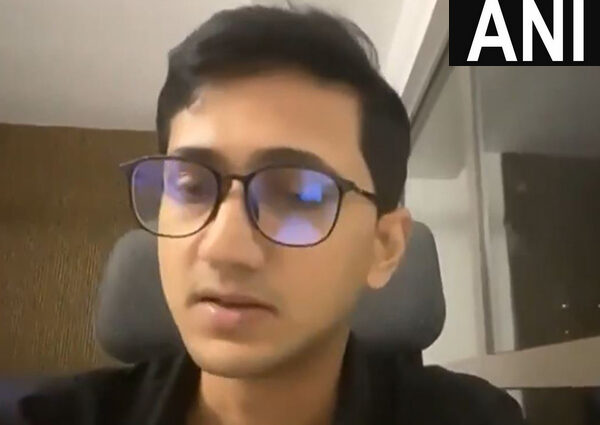
Committed To Right To Privacy: Govt On WhatsApp Row
The government on Wednesday said it is committed to ensure right of privacy to all citizens while also having the means and the information necessary to ensure public order and maintain national security. It also said that new Intermediary Guidelines provide for sufficient safeguards.
The Ministry of Electronics and IT (Meity) issued a statement hours after messaging app WhatsApp moved the Delhi High Court against the Centre’s new rules, and said such requirements are only in case when the message is required for prevention, investigation or punishment of very serious offences related to the sovereignty and integrity of India, the security of the state, friendly relations with foreign States, or public order, or of incitement to an offence also relating to rape, sexually explicit or child sexual abuse material.
The new rules require the messaging services to “trace” the origin of particular messages sent on the platforms.
Union Minister Ravi Shankar Prasad said none of the new measures will impact normal functionting of WhatsApp.
“The Government of India is committed to ensuring the right of privacy to all its citizens but at the same time it is also the responsibility of the government to maintain law and order and ensure national security. None of the measures proposed by India will impact the normal functioning of WhatsApp in any manner whatsoever and for the common users, there will be no impact,” he said, according to the statement.
The union minister said as per all established judicial dictum, no fundamental right, including the right to privacy, is absolute and it is subject to reasonable restrictions.
“The requirements in the intermediary guidelines pertaining to the first originator of information are an example of such a reasonable restriction,” the statement said.
The ministry said Rule 4(2) of the Intermediary Guidelines is not a measure in isolation. The rules have been framed after consultation with various stakeholders and social media intermediaries, including but not limited to WhatsApp.
“After October 2018, no specific objection has been made by WhatsApp to the Government of India in writing relating to the requirement to trace the first originator in relation to serious offences. They have generally sought time to extend the time for enforcement of guidelines but did not make any formal reference that traceability is not possible.
“WhatsApp’s challenge, at the very last moment, and despite having sufficient time and opportunity available during the consultation process and after the rules were enacted, to the Intermediary Guidelines, is an unfortunate attempt to prevent the same from coming into effect,” Meity said
It further emphasised any operations being run in India are subject to the law of the land.
“WhatsApp’s refusal to comply with the guidelines is a clear act of defiance of a measure whose intent can certainly not be doubted. At one end, WhatsApp seeks to mandate a privacy policy wherein it will share the data of all its user with its parent company, Facebook, for marketing and advertising purposes.
On the other hand, WhatsApp makes every effort to refuse the enactment of the Intermediary Guidelines which are necessary to uphold law and order and curb the menace of fake news. WhatsApp defends its refusal to enact the Intermediary Guidelines by carving out an exception that messages on the platform are end to end encrypted,” the ministry said.
It said the rule to trace the first originator of the information is mandatory for each and every significant social media intermediary, irrespective of their method of operation.
“The entire debate on whether encryption would be maintained or not is misplaced. Whether right to privacy is ensured through using encryption technology or some other technology is entirely the purview of the social media intermediary. The Government of India is committed to ensuring the right of privacy to all its citizens as well as have the means and the information necessary to ensure public order and maintain national security. It is WhatsApp’s responsibility to find a technical solution, whether through encryption or otherwise, that both happen.”
The statement said that in July 2019, the governments of the United Kingdom, United States, Australia, New Zealand and Canada issued a communique, concluding that tech companies should include mechanisms in the design of their encrypted products and services whereby governments, acting with appropriate legal authority, can gain access to data in a readable and usable format.
The ministry further said Brazilian law enforcement is looking for WhatsApp to provide suspects’ IP addresses, customer information, geo-location data and physical messages.
“What India is asking for is significantly much less than what some of the other countries have demanded. Therefore, WhatsApp’s attempt to portray the Intermediary Guidelines of India as contrary to the right to privacy is misguided,” it said.
WhatsApp had earlier said in a statement that requiring messaging apps to ‘trace’ chats “is the equivalent of asking us to keep a fingerprint of every single message sent on WhatsApp, which would break end-to-end encryption and fundamentally undermines people’s right to privacy.” (ANI)



